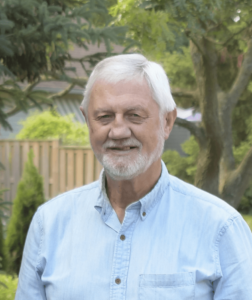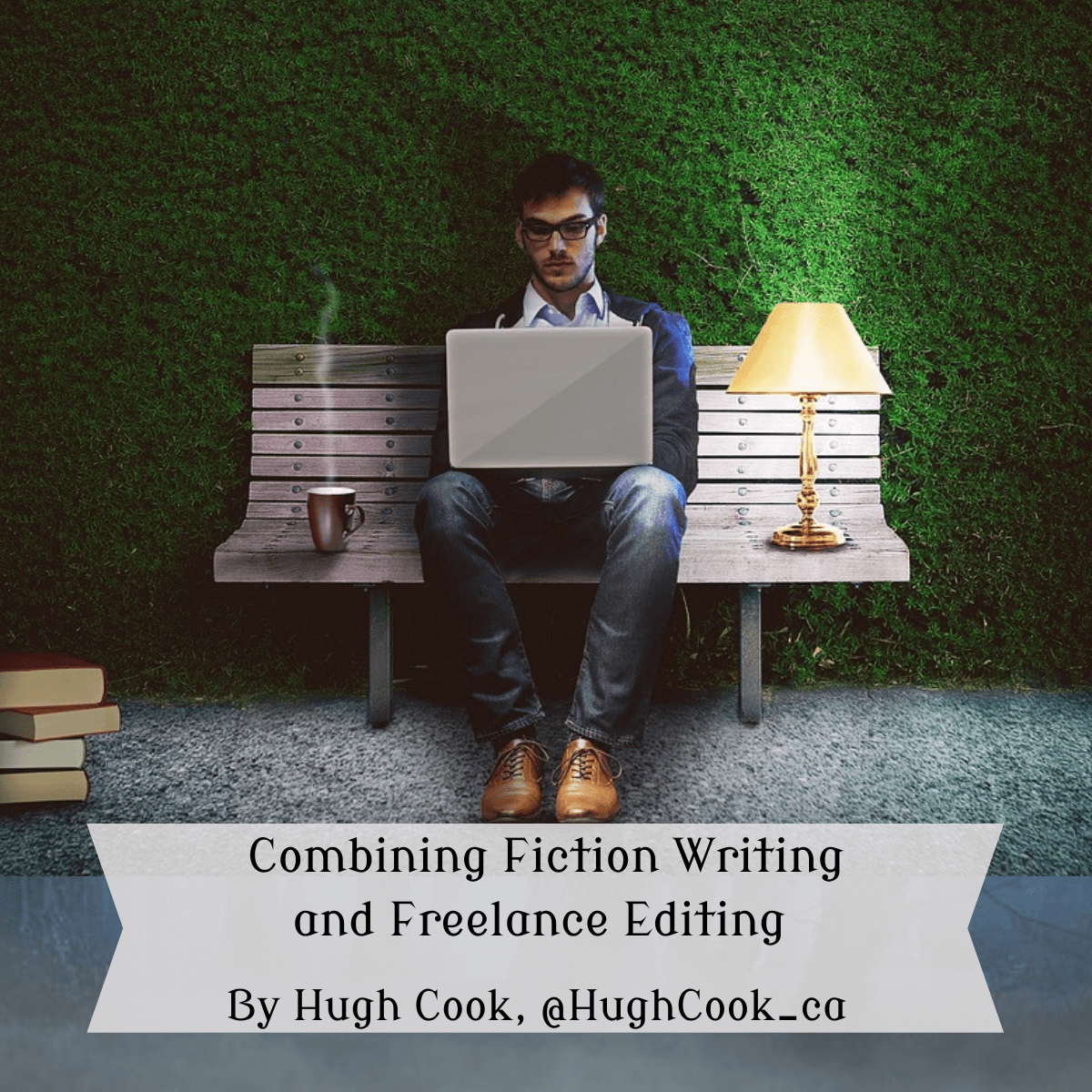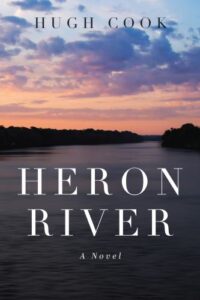By Hugh Cook
I’ve decided to use the format of a self-interview for this blog. So, here we go.
Hugh, you’re a fiction writer, but you also do freelance editing. How did you get into editing?
A number of years ago a writer friend mentioned to me that besides writing novels she also does freelance editing of fiction manuscripts. That started me thinking.
I’d earned an MFA in fiction writing from the Writers’ Workshop at the University of Iowa, had taught Creative Writing to college students for 30-some years, led frequent fiction writing workshops, and had published two novels and two books of short stories with a literary publishing house. Credentials not very different from those of my writing friend, so I jumped in.
I’ve been doing freelance editing for about 20 years now, and I enjoy it. It keeps me in touch with fiction writing craft. I find that as I’m advising editing clients on creating fully-developed characters, navigating the intricacies of point of view, or writing prose that shines, I’m also reinforcing the importance of these craft principles for my own writing.
That raises the interesting question of how your writing and editing intersect. How do you manage to coordinate right-brain and left-brain work, analysis and creativity?
As you know, there’s some debate about left-brain, right-brain theory, but there’s definitely a difference between writing fiction and doing literary analysis. It’s been a challenge moving from one to the other, and there have been times when I’ve had to set editing aside when I was deeply involved writing short stories or a novel.
I’m retired from teaching now, but I faced the same challenge during the school year. I found teaching all-consuming enough that I wasn’t able to write during the academic year. That meant summers was my writing time, and the switch from analytic work to creative writing was like turning a huge ocean liner around. It usually took a week or two for me to find my fiction writing voice again.
How do you find your editing clients―or, perhaps, how do they find you?
I have a standing ad in Poets and Writers magazine in New York, and receive queries literally from Alaska to Florida and from Massachusetts to California, writers asking me to edit their novel, their short stories, and, now and then, their memoir.
You mentioned the importance of fiction craft in your writing. Soul Seasons Publishing has just come out with a second edition of your novel Heron River. How would you describe the fiction you write?
I was asked that question a while ago by Sheila, a teller at our bank. I thought of how I might best describe my fiction, then remembered that our local library has a set of stacks that are marked CHILDREN’S FICTION, and opposite that are stacks labelled ADULT FICTION. I thought that was perhaps a useful distinction, so I told her, “I write adult fiction.”
She held a hand to her mouth, began to blush, and said, “Oh, I don’t know if I should be reading that.” I laughed, and said, “No, Sheila, I don’t write erotica or porn.” I told her that what I wrote was literary fiction. She seemed relieved, and she’s read all four of my books.
So as to your question, yes, I work hard at the craft of fiction. There are basically two schools, two approaches to writing, right? The first approach is a finicky one, in which you correct and edit your prose as you write. The other approach says, squelch the grammarian in you, pay no attention to your high school English teacher looking over your right shoulder. Don’t worry about punctuation, about sentence structure, just let the prose flow. You can always edit later.
I’ve never been able to write that way. I’m unable to move from one sentence to the next unless I’m satisfied with the previous sentence. For me a slow process, like trying to put toothpaste back into the tube. It’s not unusual for me to spend a whole morning getting a paragraph just right. What’s most important, though, is that you use whichever approach works best for you.
Are you a plotter, Hugh, or a pantser?
John Irving would be a good example of a plotter. Irving works out the plots of his novels backwards, says he can’t write the novel’s first sentence until he knows what the final sentence is. This is how he words it: “I don’t begin a novel until I know the ending. And I don’t mean that I only have to know what happens. I mean that I have to hear the actual sentences.”
The term pantsers describes writers who place pants in chair, who start a story or novel knowing perhaps no more than the beginning, and develop the story as it goes along. That tends to be how I write.
I’ve started a number of stories and both my novels not knowing much beyond the beginning. It’s my belief that reality is so multiple, so complex, that even an incredible instrument like the human imagination cannot anticipate ahead of time all the possibilities inherent in any given situation. Allow yourself to be surprised!
To me, writing the story is like taking a dog for a walk. Your intent may be to take your dog to the park to do its daily doggy business, but then you discover Sparky pulls the leash the other direction and wants to head to its favorite fire hydrant. I always give my characters freedom of the leash.
Is that what happened with your novel Heron River?
For sure. Telling how the characters and the plot developed would be an interesting subject for another blog on this site, but I’ll just say the novel starts with a young boy falling into an old abandoned well, and I ended up in situations I never saw coming. That’s one of the things that’s most fascinating about writing fiction: you never know where the story may go!
 Hugh Cook holds an MFA. in fiction writing from the Writers’ Workshop at the University of Iowa at the University of Iowa. He has published two books of short stories and two novels. Readers can obtain his novel Heron River at thriftbooks.com.
Hugh Cook holds an MFA. in fiction writing from the Writers’ Workshop at the University of Iowa at the University of Iowa. He has published two books of short stories and two novels. Readers can obtain his novel Heron River at thriftbooks.com.
Hugh’s email: hughcook212@gmail.com, and website: www.hugh-cook.ca.
Writer and Editor @HughCook_ca on Combining Fiction Writing and Freelance Editing: Share on X


Thanks so much for the post today, Hugh! There are lots of takeaways in here, even for the non-editors.
I'm a very slow writer and probably for the same reason – I make sure each sentence is decent before moving to the next. (Or maybe I'm just a really slow typist.)
Good luck with your writing and editing, Hugh!
Thanks, Alex. Best wishes with your writing as well.
I'm a two-finger typist, but have a decent speed. :)
Thanks for sharing your experience of doing different sorts of writing. I've not done editing, but I have done freelance non-fiction work, and it does tap different parts of the brain, doesn't it? I appreciate your insights.
Thanks, Margot.
Very interesting!
I love the 'clunk' I hear in my brain when I switch from creative to linear tasks. It's fun to use both aspects of the brain during writing.
Good luck to Hugh
Thanks, Margot. Best to you in your writing as well.
Hi Elizabeth and Hugh – an interesting and informative post … gosh I'd be muddled! Congratulations on achieving both – and obviously gives you alternatives when you need a change. Thanks – cheers Hilary
I'm glad you found it interesting and informative, Hilary.
Cheers as well!
Great interview. I have to edit while I write too. That's why I'm a slow writer.
Yup, that's how it works for many of us.
Fiction and non-fiction are so different. It does take a bit to shift brain gears, even when editing.
Yes–that's my experience, anyway.
I usually begin my day editing the previous day's writing, then go on to write new material.
I never really thought about the intersection between editing for others and writing for myself. But now that you mention it, I learn a lot from critically reading other's works, whether it's an actual edit or reading for fun. The really good writers can pull me in and make me forget about the mechanics…John Irving being one of them!